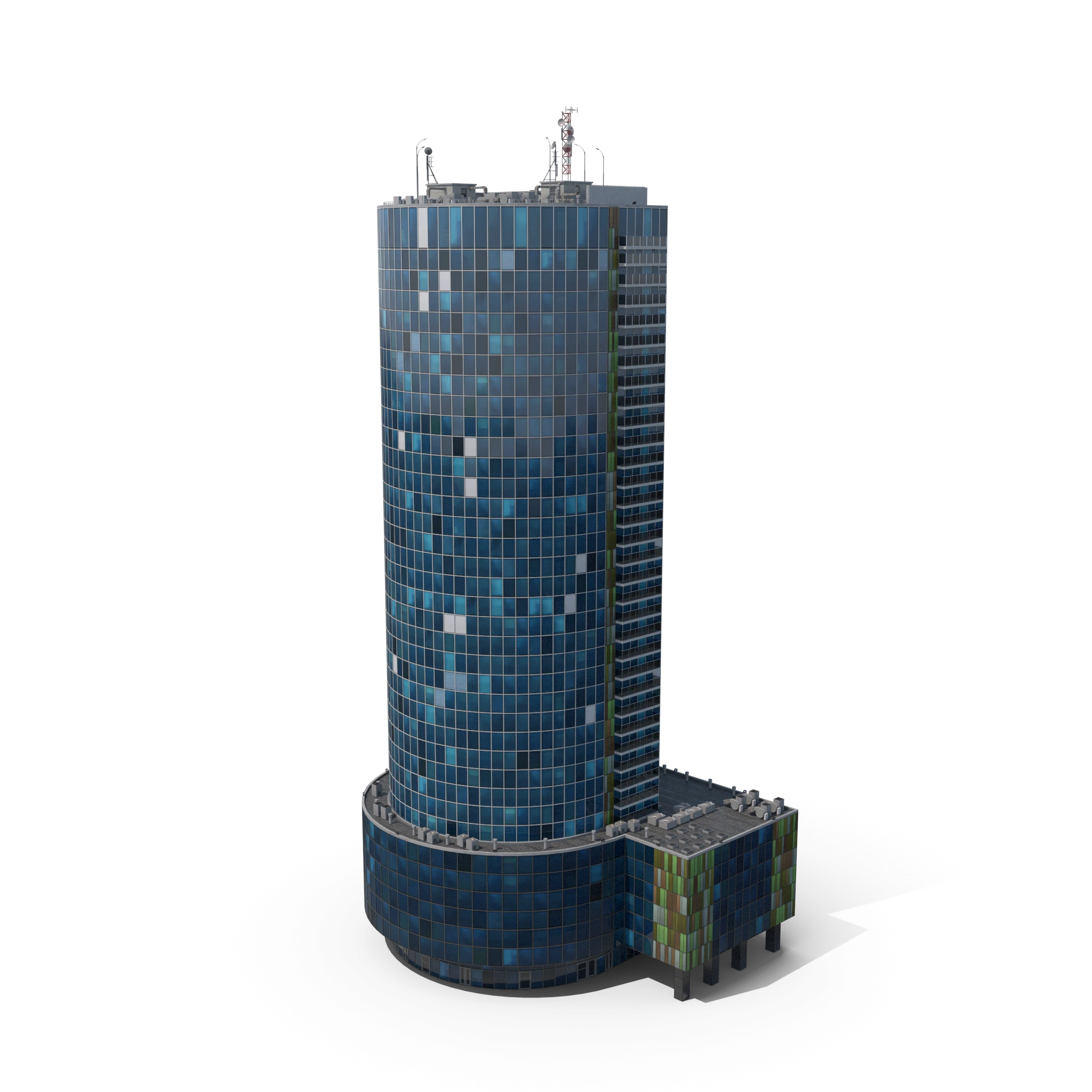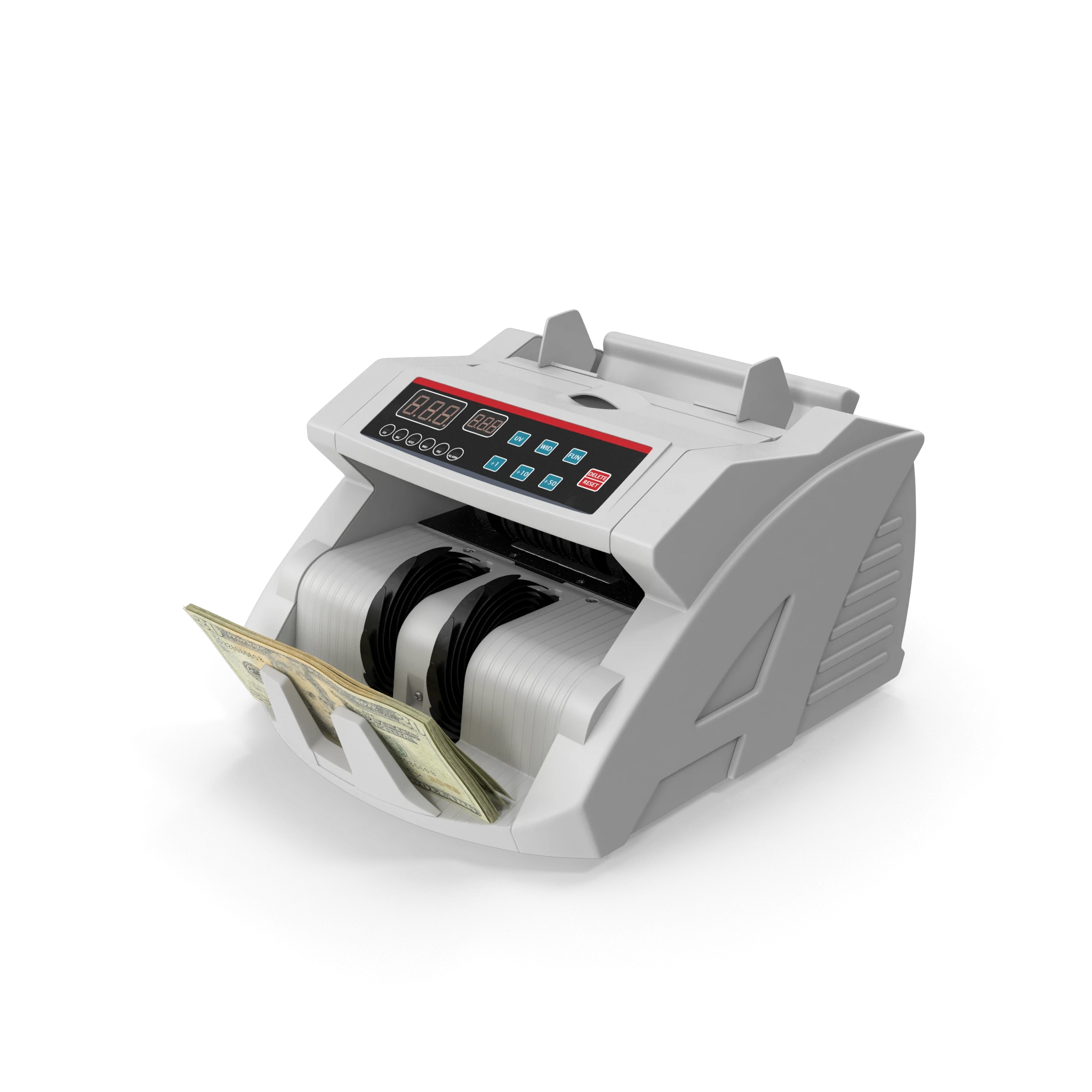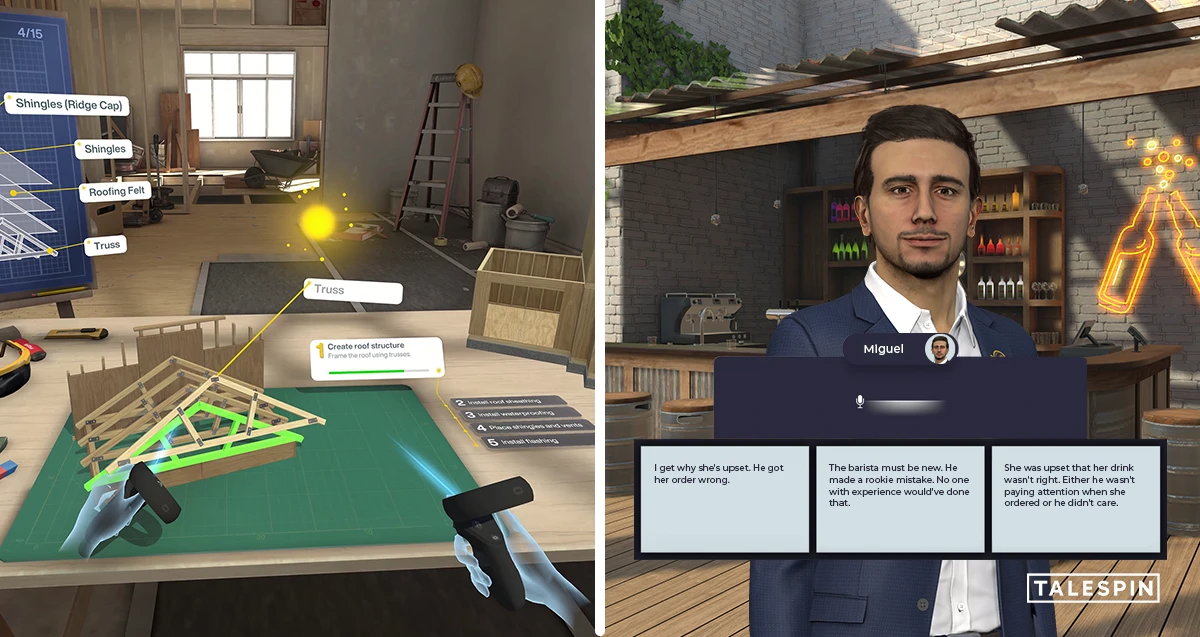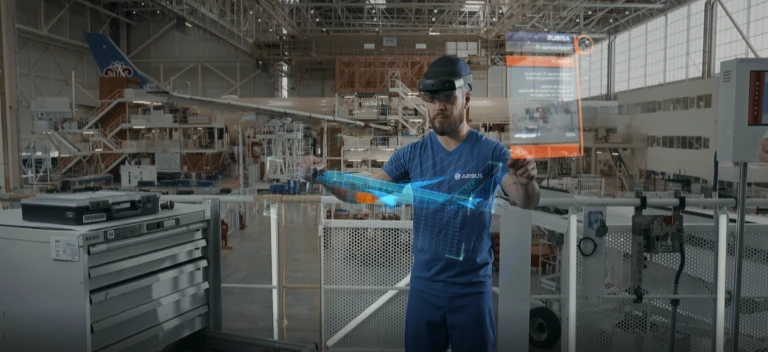The concept of the metaverse is finally taking shape, with big brands leading the way in generating revenue and promoting their products throughout shiny new platforms. Gucci, Balenciaga, Coca-Cola, H&M, and Nike are just some of the names willing to try technology-enthusiastic new enterprises - but the opportunities for businesses across different industries are practically endless. If you want to embrace the digital transformation, here are some ideas to run a successful metaverse enterprise.

What is an Enterprise Metaverse?
By definition, an enterprise metaverse is an immersive virtual space that provides digital opportunities for complex business endeavors. For example, the chance to promote digital services and tools, create more meaningful connections with customers, train employees, and generate new leadership prospects.
There are several companies working on novel metaverse enterprises. Some of these are works in progress, but their commercial prospects are already looking excellent! For example:
- Decentraland is a virtual real-estate metaverse where you can buy and sell land, avatar wearables, and digital paraphernalia using virtual currencies.
- Meta, formerly Facebook, is working hard on building immersive communities where businesses can grow. They expect the platform to reach a billion people in the next decade.
- Cerebrum Progressus (formerly PandaMR) is a metaverse designed for the needs of businesses and communities with immersive 3D virtual solutions optimized for companies, educational entities, arts and entertainment industries.
The Impact of the Metaverse on Businesses
Metaverse enterprise solutions are a perfect way for brands to evolve and differentiate themselves from their competitors. Within each, companies can find new sources of revenue and explore new types of services and products. So, let’s take a look at some of the ways in which the metaverse will influence business as we know it.
How Will the Metaverse Transform Businesses?
As we mentioned, the metaverse is still very much in the making. What this means is that we won’t know its exact shape until some time has passed and we have determined the more effective ways to use these new technologies. Experts believe the impact on business will be pretty significant - and we agree.
For a while, we have seen a trend in mobile and internet-powered personalization. For example, most social media users have become familiar with marketing campaigns focusing on products and services specifically tailored to their interests. In fact, algorithms like that of Facebook can predict someone’s personality traits better than their own friends!
The metaverse has been called the next iteration of the internet, and there’s a reason for it. A metaverse enterprise can already:
- Reach a much larger audience by overcoming all geographical boundaries, accessing new markets, and offering immersive, interactive 3D experiences for clients all around the world.
- Build more meaningful connections by introducing a higher degree of realism for enterprises and their customers. For example, companies can track consumer requirements in real-time and help them with configurable and personalized experiences.
- Drive engagement by providing users with customized avatars, including e-commerce features, numerous built-in payment methods, data security and identity protection, and a universal economy usually backed by consistent cryptocurrencies.
How Do You Make Money on the Metaverse?

It’s now time to look at five unique ways in which you can thrive in the enterprise metaverse. There are more out there, for sure. Because the metaverse is still a work in progress, you don’t need to restrict yourself to these. But they might come in handy when looking for metaverse enterprise solution ideas.
What Businesses Will Benefit the Most From the Metaverse?
We believe these five industries listed below will be the ones to benefit the most from the creation and development of the metaverse:
- Marketing and Sales
- Events and Conferences
- Professional Training
- Architecture
- Manufacturing
Let’s go through them in some more detail.
Marketing and Sales
Some say that marketing is the metaverse’s next big thing. And this is probably true, for we have seen some truly impressive campaigns in the last couple of years.
Let's see an example. Fortnight is a game where players have to fight each other (using a last-person-standing-wins model). Lately, however, it has also become a virtual hangout space that's more accessible than anything requiring a VR headset. Today, what happens in Fortnite's battle royale doesn't matter much; you can explore an expansive map and unlock goofy skins and accessories. Even artists like Ariana Grande and Travis Scott have done concerts on the platform.
Even though many industries are building metaverses, the gaming one is probably the first one to 'do it right'. It's here where marketers flock to promote their products and services. And, judging from the engagement we are seeing, it’s working!
Events and Conferences
Both a press conference and a massive trade fair can now happen entirely on the metaverse. As metaverse technology matures, more people can share the same virtual world in real-time, opening the door to countless immersive events that have none of the constraints of the physical world.
Let's just look at this year's (2022) most anticipated events and how they went. In May, the Metaverse Club organized a conference featuring over 5,000 entertainment, DeFi, NFT, and blockchain companies. In June, the Augmented World Expo USA, focusing on virtual, augmented, and mixed reality, brought together hundreds of users, startups, investors, and new metaverse enterprises.
Many companies are focusing entirely on events in the metaverse. For instance, Cerebrum Progressus (formerly PandaMR) runs virtual homes, galleries, and event venues that can be accessed with any device and from anywhere in the world.

Professional Training
Another essential application of the enterprise metaverse is professional and workforce training. Many users are continuously joining the metaverse to develop skills, while companies set up virtual environments where trainees can learn, perform, and test essential operations.
The enterprise metaverse can provide companies with two types of skill training. One is soft skills, such as leadership, communication, and self-awareness. The other is technical skills, or using mixed reality to practice procedural tasks and learn how to use equipment and objects.
One of the most significant advantages of using the metaverse to train and educate users is that you can mimic scenarios found in real-life and roleplay while providing students a safe place to learn that is both realistic and emotionally invested.
For example, imagine you want to train employees to respond to accidents or emergencies in the workplace. Instead of making them watch monotonous videos or read lengthy training manuals, they can use an immersive metaverse scenario to learn safety response measures in a much safer and more memorable way.

Architecture
The metaverse is also a fertile ground for architects and engineers. As virtual environments become more common, and platforms like Horizon Worlds, Spatial, and Cerebrum Progressus (formerly PandaMR) genuinely begin to feel like an extension of life or work, many people are dedicating themselves entirely to building the shapes of these environments.
Enterprises can leverage the metaverse to strengthen training and test engineering endeavors. For example, Airbus (a leader in aerospace technology) partnered with HoloLens2 to reduce design validation time. The result? 80% more accelerated complex tasks. It took Airbus 40 years to build 10,000 aircraft. Now, the company claims it can produce 20,000 in just ten.
The metaverse also provides novel opportunities for designers and architects to test and explore new ideas. This is, perhaps, one of the most tantalizing possibilities we're seeing emerge, so it's definitely one to keep in mind when thinking about new metaverse enterprise solutions and ideas.

Manufacturing
The ability to simulate and render 3D prototypes is another game-changer for enterprise metaverse opportunities. In particular, when these involve complicated technical and logistical parts that need to also carefully balance inventory, speed, overheads, and labor costs. Using the metaverse, companies can run complete production cycles using virtual simulations. Many companies have already tried it and are reporting impressive results.
In 2021, BMW and NVIDIA took virtual factory planning to the next level when they tried an entirely new approach to their manufacturing systems. Using the Omniverse virtual factory planning platform, they were able to set new standards and make a huge leap in digital planning.
The metaverse promises to unlock better efficiencies and empower more enterprises to design and produce novel techniques and processes. This represents an entirely new territory unbound by the rules and limitations of the physical world.

Virtual worlds are still in development, but there are many opportunities already shaping the future of the enterprise metaverse. We listed five examples of industries using it to better their products and services. Can you think of more?

